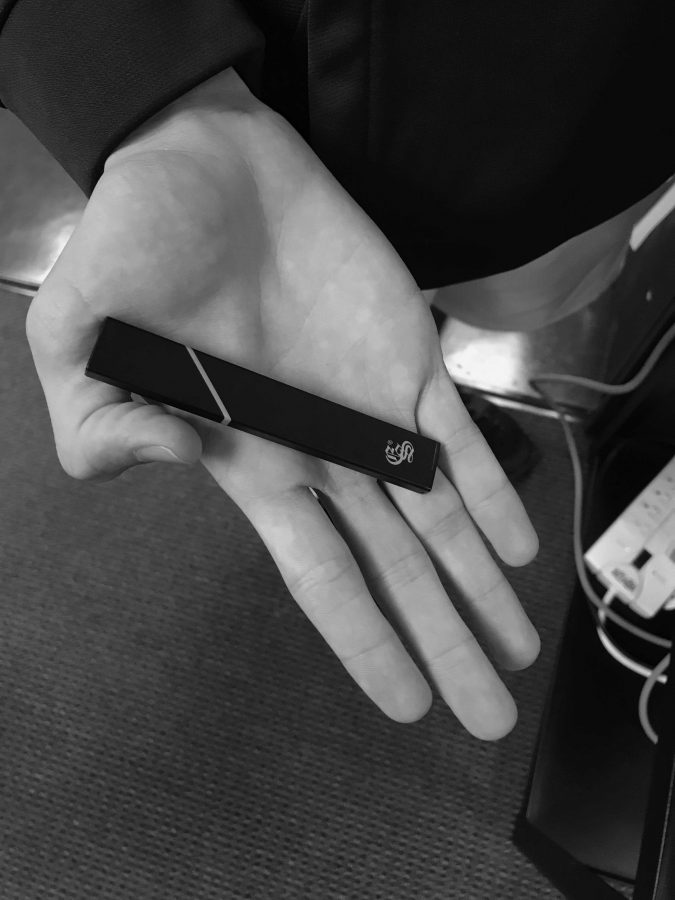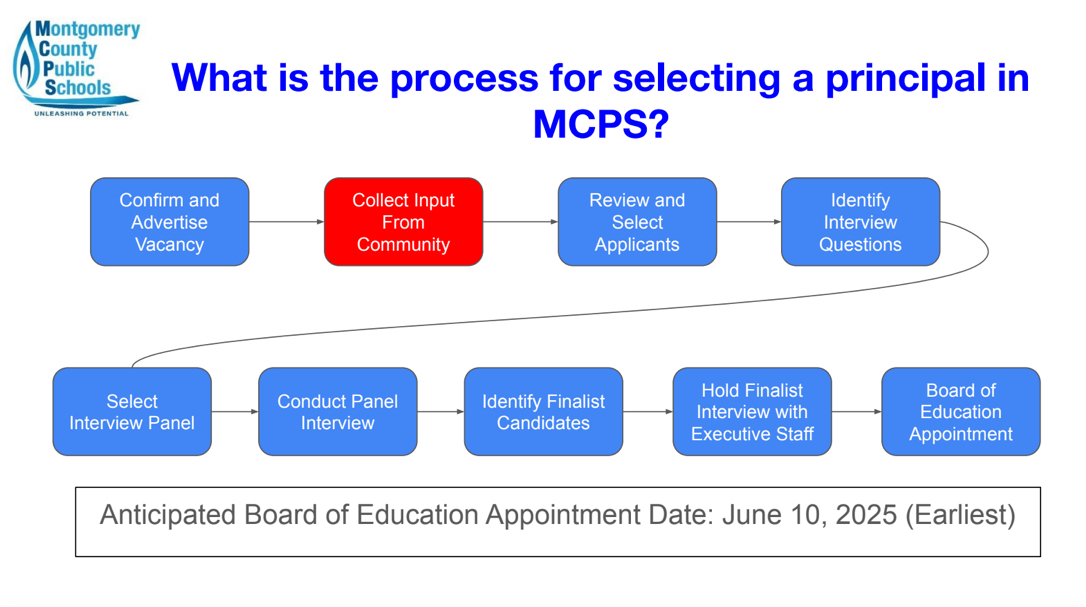As of Oct. 1, hundreds of new Maryland laws have gone into effect. These laws span across a wide scope of subjects, from gender identification on licences to increased gun regulation laws.
Tobacco age raised to 21
One of the new Maryland laws that was enacted raises the tobacco use age from 18 to 21. This includes the purchases of e-cigarettes, vapes, pod devices such as JUUL®, e-liquids, component parts and accessories.
This age raise is a part of a nationwide fight against the e-cigarette epidemic in an effort to stop teenagers from using tobacco or e-cigarettes. Maryland isn’t alone in this change, 17 other states have also raised the tobacco sales age. Along with raising the age, the repercussions for selling tobacco to someone underage have also increased. According to health.maryland.gov, the penalties for underage tobacco sales progressively get higher: $300 for the first violation, $1,000 for second violation within two years, and $3,000 for each subsequent violation within two years of the preceding violation.
The law extends past the sale of cigarettes and tobacco; it includes e-cigarettes and vapes regardless of nicotine content. The first death related to smoking happened on Aug. 23 in Illinois, since then the death toll has climbed slowly to 26 deaths throughout the US.
This raise in age is a precaution to preserve lives, and stop the epidemic caused by e-cigarettes. Because this law was enacted with the youth’s best interest in mind, feelings are positive about it. “I think the age raise is really good because teenagers are less likely to begin smoking now because when you’re a teenager you make impulsive decisions, but if you have to wait until you’re older than it’s less of a problem,” junior Ari Glazier said.
Bump stock sales banned
On the subject of laws created to save lives, the sale of bump stocks was recently banned in Maryland. Although the possession of a bump stock is also illegal now, that doesn’t apply to those who have purchased a bump stock before Oct 1.
Bump stocks are used to assist in fire bumping, or an attachment to guns that basically turns a semi automatic gun, to an automatic. This is a big step for stricter gun control practices, as Florida, California, Hawaii, Delaware, Washington, Washington D.C, Nevada and now Maryland, are the only places with the bump stock ban. According to public opinion polls, “Two percent of registered voters supported a bump stock ban, including 68 percent of Republicans and 79 percent of Democrats.”
This overwhelming support for the ban of bump stocks even comes from the National Rifle Association, who urges for extra regulations on bump stocks. This support is also seen in students. “It’s really great to see some progression in gun control, even if it’s small,” freshman Jake Hoffman said.
Prior to the Las Vegas shooting, only two states had banned the sale of bump stocks. After the Las Vegas shootings Slide Fire Solutions, the patent holder for bump stocks permanently halted the sales of their products. This action has been seen as a positive step in the right direction, with little controversy unlike the raise in age of tobacco purchases.
Students feel that the government is focusing too much time and money in the wrong places. “Obviously I think it’s beneficial for the general welfare to raise the tobacco age but like, so many people have died from shootings, and the government still hasn’t done as much as I wish they could. But when it comes to vaping or whatever it is, they were so quick to take action,” Hoffman said.
Updated repercussions
Along with new laws there are new repercussions too. MarylandReporter.com said, “Penalties for offenses such as hate crime threats and solicitation for murder are becoming more severe, while gambling is being decriminalized.”
Driver’s license ID’s broadened
Another law put into place on Oct. 1 allows those applying for a driver’s license to leave their sex identification unspecified. This applies to licenses, identification cards and moped operators permits. This means that if someone is sex non-specific, they can leave an “x” for that part of their information. Also, it allows for people to change their gender after the fact, and has made the process easier by reducing the amount of paper work needed to change the sex that one identifies with. The current law requires an applicant to choose between “M”(male) and “F” (female).
Not only does this law gives more opportunity for members of the LGBTQ+ community to express themselves, but it also shows a lot about what Maryland believes as a state. Maryland has had several statewide protections against discrimination in the past, and activists are encouraged to see further implentations that protect and support the LGBTQ+ community. This new law does have a tradeoff though, and it increases “the general fund expenditures by $157,832” Maryland.gov said. Also, the cost for changing your sex on a license, identification card or moped permit is $20.
Douglass, Tubman required
Maryland established another law that promotes equality and representation of others. All public schools in Maryland are now required to incorporate interactive activities involving Frederick Douglass and Hariet Tubman during Black histrory month, two Maryland born anti- slavery figures. The previous law only required schools spend time out of their day on “Washington’s Birthday; Lincoln’s Birthday; Veterans’ Day; Columbus Day; Arbor Day; and any other day of national significance,” according to mgaleg.maryland.gov. Black history month takes place all of February, and with this new requirement there is more of an opportunity for inclusion of other cultures, as well as the chance to educate other people about the past. “This new law is really awesome. I think it’s important to have other cultures be recognized, and for others to learn about the past and important people in it. It’s cool to know that diversity is something that’s being prioritized in school,” sophomore Leona Berhane said.
Scooters given more rights
One of the more random of the hundreds of laws being taken into effect involves electric-low-speed scooters, which will now be categorized under the same classification as bicycles or bicyclists on roadways, and given the same rights and responsibilities. This redefines the term “bicycle” in terms of Maryland vehicle laws, and provides a new set of rights to operators of such vehicles. The term also restricted the meaning of scooter, excluding all motorized vehicles. The electric low-speed scooter law includes only vehicles that meet certain guidelines; it has to be designed to be operated by human power, have two or three wheels and has a drive mechanism, other than by pedals, directly attached to a drive wheel.
This law isn’t as relevant to suburban areas, but has a greater effect in places like Washington D.C. “At first I didn’t really care that they made this law but then I realized my friends and I, if we ever go into D.C, like to scooter around on the electric ‘Bird’ things that they have laying around, so that’s kind of cool,” junior Rozhin Fadae said.
Pedestrians protected
Maryland is not only watching out for scooter drivers, but pedestrians too. The Pedestrian Safety Fund Act of 2019 increases the maximum fine for violations of Maryland laws in regards to crosswalks or other pedestrian modes of transportation. This means that not only are the fines raised, but they also all go to a specific safety fund. This fund goes toward the betterment of roadways and bicycle/pedestrian transportation.
As a driver, this increases pressures to make sure to stop at every stop sign and watch out for pedestrians. “Sometimes I walk home from school because I live so close, so knowing that the law has my back is really comforting. Honestly it gets a little nerve wracking crossing the crosswalk right in front of the exit of the parking lot at 2:30,” junior William Margarites said.
DUI punishments increased
The final major change that has happened as a result of these new laws flushing in is the enhancement of punishment for driving under the influence. According to a 2017 study, drunk driving takes at least one person’s life every 48 minutes. This subject is close to home in the community, and just two years ago the SGA spring project was about drunk driving and its impact on the world.
The amendments to the previous law increase the fines and punishments for those who offend the law multiple times, leading up to 10 years of imprisonment and a $10,000 dollar fine. “Hearing that there is still legislation that is proactive about the drinking while driving is really good to hear,” Fadae said.









Hector Denison • Nov 4, 2019 at 7:09 pm
Great article Za Boo!
Granpa H